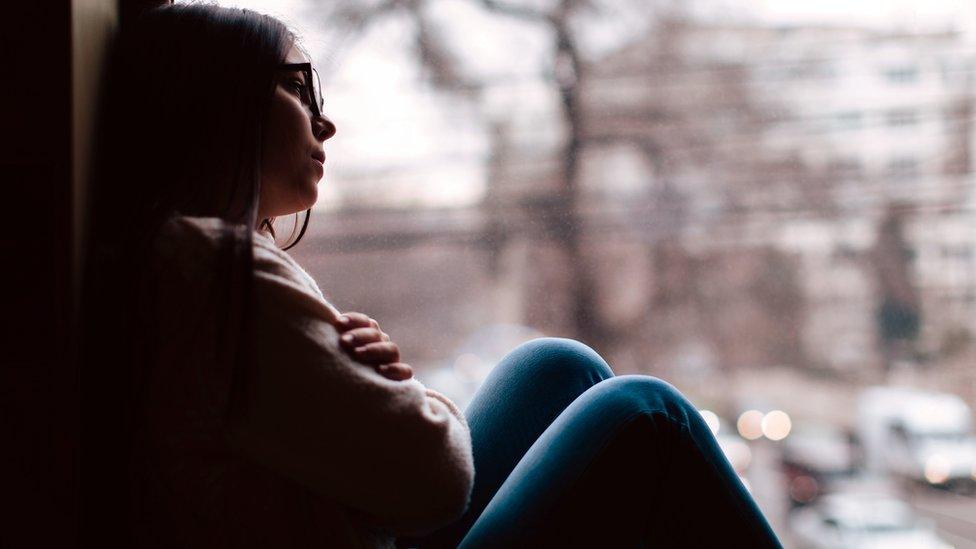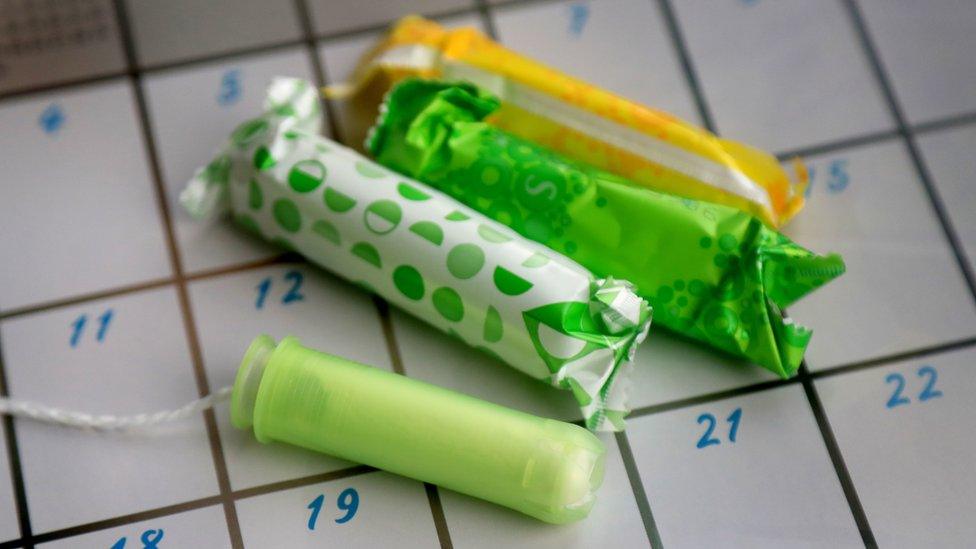Make period products free like Scotland, UK ministers told
- Published

Charities are urging UK ministers to end period poverty by following the example of the Scottish government in making products free in public settings.
Period poverty is a lack of access to sanitary products such as pads and tampons because of financial hardship.
Charities say the problem has increased during the cost of living crisis and argue action is long overdue.
According to a poll of 1,000 women and girls carried out for charity Plan International, one in four are struggling to afford period products.
The UK government has promised to end period poverty by 2030.
In 2019, then Minister for Women Penny Mordaunt pledged £250,000 for a new taskforce to tackle the issue.
However, its work was suspended during the coronavirus pandemic to free up resources, and has not resumed.
In April 2022, ministers said further announcements regarding the taskforce would be "made in due course".
The Scottish government has, meanwhile, legislated to make period products free for all.
There is now a legal duty on Scottish local authorities to provide free items such as tampons and sanitary pads to "anyone who needs them".
A spokesperson from the period poverty charity Freedom4Girls said in a Facebook post , externalthat they welcome the news of Scotland's new policy on period products but hope the UK government "follows suit".
"Let's hope that the UK Government follows suit with reactivation of the period poverty taskforce (which Freedom4Girls was a part) with the £250k the government promised in 2019 to tackle the issue."

With costs increasing, cutting back on groceries to afford period products has almost doubled compared to last year, the Plan International survey suggests.
Nearly one-in-five of those surveyed were unable to afford period products at all, and more than a quarter were concerned about affording period products in the future.
Some 80% of those who struggled or were unable to afford period products have used toilet paper as a substitute, the survey found.
Rose Caldwell, CEO of Plan International UK, has described it as devastating that so many girls and young people in the UK are unable to afford the period products.
She said: "As we look to an uncertain future, many more families will face tough financial choices, and more young women than ever are likely to face issues affording the products they need.
"Period products are a necessity, not a luxury, and they need to be treated as such."
What government action has taken place?
Since January 2020, a Department for Education scheme has provided free period products in schools and education institutions in England.
Additionally the "tampon tax" has been abolished, with a zero VAT applying to all period products.
In 2019, NHS England announced that it would offer period products to every hospital patient who needs them.
Also the Home Office has ensured that through law all people in custody can access period products.
However the charity "Bloody Good Period" has called into question the effectiveness of current government schemes to combat period poverty.
The charity have said that "inflation has removed any affordability gains from the tampon tax abolition." and are calling on the government to provide "free period products for all."
Period products provided by the NHS to patients has had limited impact, according to the charity, due to increased waiting lists, many people, particularly those with gynaecological conditions, have difficulty gaining access to healthcare.
The Royal College of Obstetricians and Gynaecologists report that gynaecology waiting lists have faced the biggest increase of all medical specialities.